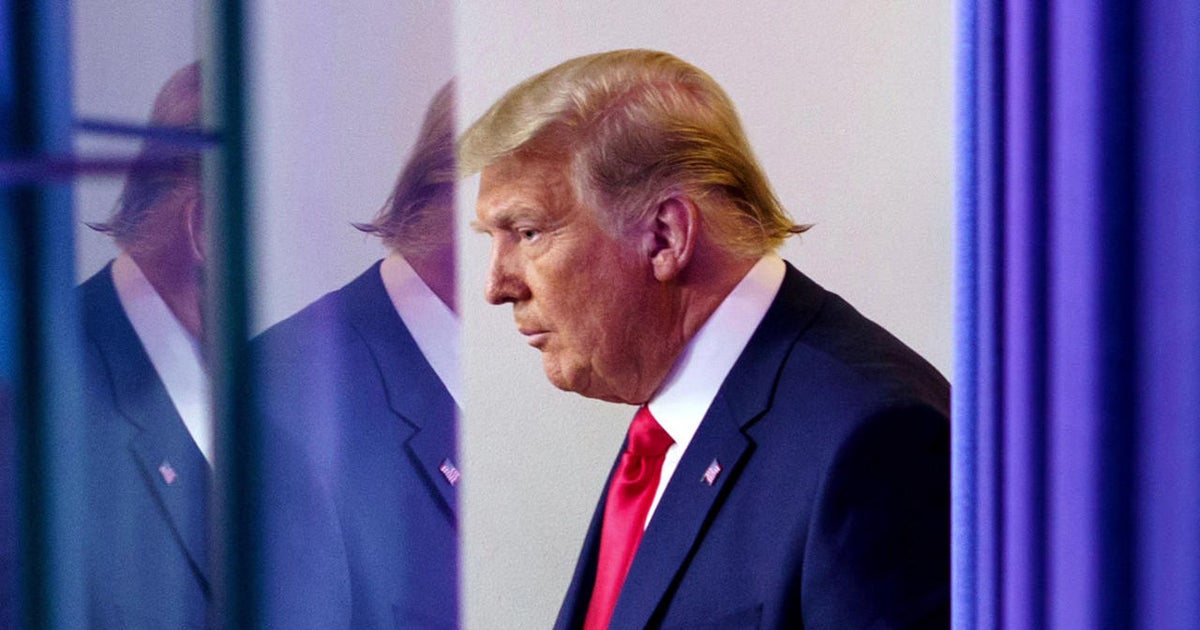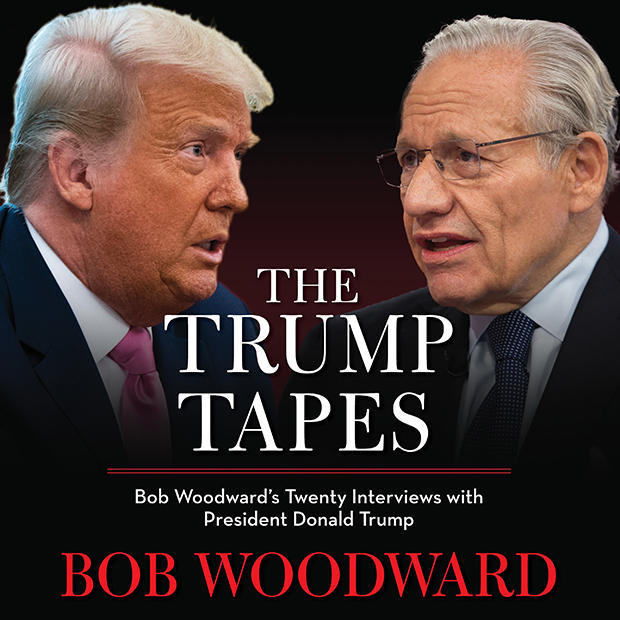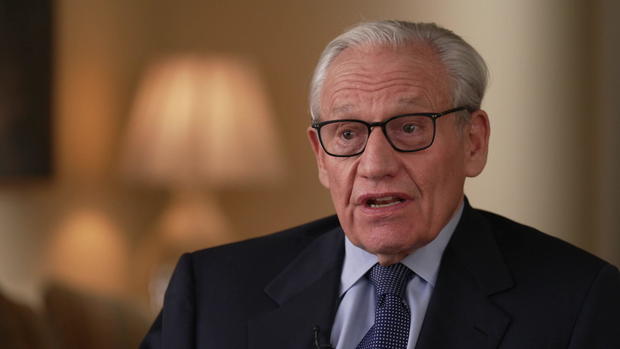For nine months back in 2020, when the phone rang at Bob Woodward’s Georgetown home, there was a good chance it was a call he didn’t want to miss:
White House operator: “Mr. Woodward, the president…”
Trump: “Hi, Bob!”
Woodward noted, “The phone would ring; is it a robocall, or is it Trump?”
Sometimes Woodward’s wife, journalist Elsa Walsh, answered the calls, which came day or night. She joked, “I sort of say – like Princess Diana – that there were three people in this marriage: Bob, me, and Donald Trump. And it was sort of never-ending.”
Woodward scattered tape recorders around the house, to be ready for the surprise calls.
Operator: “Go ahead, Mr. President. You are connected.”
Trump: “Hi, Bob!”
Woodward: “Sir, how are you?”
And Donald Trump would talk (“I respect Putin. I think Putin likes me. I think I like him”) and talk (“I said to the king, ‘King, you gotta pay us for protection'”), about the pandemic, North Korea, Russia, race relations, just about anything.
Trump: “I bring rage out. I do bring rage out. I always have. … I don’t know if that’s an asset or a liability, but whatever it is, I do.”
Simon & Schuster
There were 16 phone calls, 20 interviews all told, eight hours of conversations, which Woodward has compiled into an audiobook, “The Trump Tapes,” out this week, published by Simon & Schuster (a part of CBS’ parent company, Paramount Global).
Woodward told CBS News’ John Dickerson, “In many ways it’s the missing piece of the Trump story. We’ve heard a lot of Trump. He’s said a lot. But what did he do in the presidency? And having the time, I could go back and ask questions, again and again.”
Woodward has written about the calls, but hearing Trump in his own voice, he believes, is enlightening: “I’ve reported on this in the book I did, ‘Rage.’ But I then went back and listened to these tapes and said, ‘My God, there is a whole new Trump that emerges.'”
Trump’s tone of voice offers insight into why he may have kept totems from his presidency at Mar-a-Lago, like the letters from North Korea’s Kim Jong-un. It’s clearly a relationship he cherishes:
Trump: “We got along great. We’ve always gotten along great. … You meet somebody and you have a good chemistry, and there is a lot of truth to it. You meet a woman, in one second, you know whether or not it’s all going to happen. Okay? We had very good chemistry together.”
The topics veer from the humorous…
Trump: “I said [to Kim], ‘Did you ever hear of the song “Rocket Man”?’ He said, ‘No, no.’ ‘Did you ever hear of Elton John?’ ‘No, no.’ I said, ‘I did you a great favor. I called you Rocket Man.’ He goes, ‘You called me Little Rocket Man!'”
… to the deadly serious…
Woodward: “Have you given Kim too much power?”
Trump: “No.”
Woodward: “Because if he’s defiant, if he shoots one of those ICBMs …”
Trump: “Doesn’t matter.”
Woodward: “… what are you going to do, sir?”
Trump: “That doesn’t – let me tell you, whether I gave it to him or not, if he shoots, he shoots. And if he shoots, he shoots.”
Dickerson asked, “He says about the North Korean leader, ‘If he shoots, he shoots.’ How did you react to that?”
“I really froze,” Woodward replied. “Because Trump said it in a way of, ‘If he shoots,’ you know, kind of cavalier. And, of course, it would be unthinkable.”
CBS News
One theme runs throughout all eight hours of tape: Trump thought the presidency was a one-man show
Trump: “I get people, they come up with ideas. But the ideas are mine, Bob. The ideas are mine. Want to know something? Everything is mine.”
But a presidency based on personality was overmatched by COVID-19. What Woodward called one of the most stunning moments of his 50 years of reporting was learning that on January 28, 2020, just days after the first COVID-19 case was confirmed in the United States, Trump’s national security adviser Robert O’Brien had given him a grave warning:
O’Brien: “I think the exact phrase I used was, ‘This will be the biggest national security threat you face in your presidency.’ I was pretty passionate about it.”
Yet, at a rally in New Hampshire two weeks later, Trump said, “Looks like by April, you know in theory, when it gets a little warmer, it miraculously goes away. Hope that’s true!”
When Woodward learned about that disconnect between what the president knew and what he said, he asked Trump why he didn’t sound the alarm:
Trump: “I wanted to always play it down, because I don’t want to create a panic.”
Woodward: “Was there a moment in all of this, last two months, where you said to yourself, ‘Ah, this is the leadership test of a lifetime’?”
Trump: “No!”
Woodward told Dickerson, “When you hear this voice and the way he assesses situations and himself, he’s drowning in himself. And at one point where I’m interviewing him and I just offer the commentary, ‘I feel like I’m talking to a drowning man,’ when he’s talking about the virus, and he says, ‘We’ve got it under control.'”
Taken as a whole, the recordings paint a revealing self-portrait.
Dickerson asked, “Is it that he thinks of the presidency as a possession?”
“Yes, I think he does,” Woodward replied. “I think [he considers it] as a trophy. And he has got it. And he is gonna hold it.”
Which leads to one of Woodward’s biggest regrets: the question he didn’t ask. “There was one point where I asked him, ‘I hear that if you lose, you’re not gonna leave the White House?'”
Woodward: “Everyone says Trump is going to stay in the White House if it’s contested. Have you thought …”
Trump: “Well, I’m not – I don’t want to even comment on that, Bob. I don’t want to comment on that at this time. Hey, Bob, I got all these people, I’ll talk to you later on tonight!”
“It’s the only time he had no comment,” Woodward said. “And this, of course, was months before his loss. And I kind of slapped myself a little bit: Why didn’t I follow up on that a little bit more?“
Dickerson asked, “At the end of the book, ‘Rage,’ you said that Donald Trump was ‘singularly unfit to be President.’ And now, listening to these tapes, you draw a more grave conclusion. What is that conclusion?”
“Trump was the wrong man for the job,” Woodward replied. “I realize now, two years later, all of the January 6 insurrection, leads me to the conclusion that he’s not just the wrong man for the job, but he’s dangerous, and he is a threat to democracy, and he’s a threat to the presidency, because he doesn’t understand the core obligations that come with that office.”
For more info:
Story produced by Jason Sacca. Editor: Lauren Barnello.
See also:







